Healthcare myths can be found in just about every society there is. Some are due to superstitious beliefs, some stem from common misconceptions. Nevertheless, they cause more harm than good.
It’s crucial to know the facts about oral hygiene because poor oral hygiene can lead to tooth decay, tooth loss, and other problems. Your overall health is influenced by your oral health. There are many myths concerning oral health care, but it is critical that you understand the truth. Discover the truth about dental myths so you can better care for your teeth.
Dental Health practice is not a stranger to these myths. There are literally thousands of pieces of advice from the internet regarding dental health and other oral health tips. What is fact from false?
While some myths may not be harmful, myths about dental health can be a different matter.
What Are a Few of These Dental Health Myths?
- Eating a lot of sugar can cause cavities
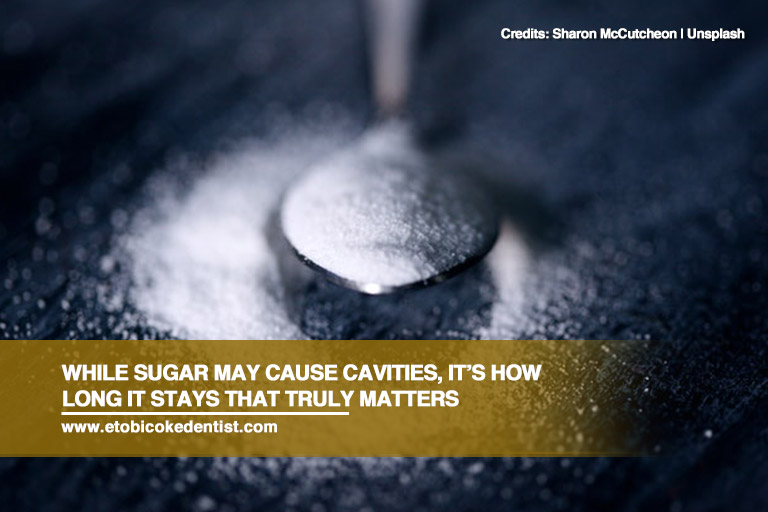
While sugar may be a cause for the development of cavities, the common misconception is that when you reduce your sugar intake, you also reduce the likelihood of developing cavities.
This cannot be further from the truth. The issue with sugar isn’t how much you take in, it’s how long it stays in your mouth.
Cavities form when bacteria feed on these sugars. Over time, they’ll start to chip away at the enamel of your teeth and this will eventually lead to tooth decay.
To avoid this, make sure you drink a good amount of water after eating sweets. This washes away some of the residue left in your teeth. You also have to brush as soon as you finish eating sugary treats. Sometimes, simply drinking water is not enough to get rid of sugar particles.
- Brushing harder cleans better

It’s understandable that many people believe that cleaning your teeth with a more forceful brushing motion will perform a better job. However, brushing your teeth vigorously (especially with a stiff-bristled brush) erodes your enamel and irritates your gums.
Brushing more vigorously is not very effective. The more you brush, the more damage you cause to your teeth’ enamel and gum tissue. It can lead to additional issues, such as gum recession, in the long run. Instead, brush your teeth gently twice a day for two minutes with a soft-bristled brush.
- Bleeding gums are fine
It’s normal to have some bleeding if you haven’t flossed in a while and are just getting back into a flossing regimen. When your gums are irritated, which is caused by all of the plaque and germs between your teeth, bleeding occurs.
This irritation and bleeding should subside after you start a consistent flossing practice. It’s time to see your dentist if it hasn’t stopped after a few weeks. Gum disease is characterized by bleeding gums, which can have significant consequences for your oral health as well as your overall health.
Gum disease is quite common. Gum disease affects up to 52% of people aged 30 and older, according to research conducted by the Centers for Disease Control and Prevention (CDC). We become more susceptible to infections, such as gingivitis and gum disease, as we age. Gum disease affects 64% of individuals over the age of 65.
- Avoid Candies, Avoid Cavities
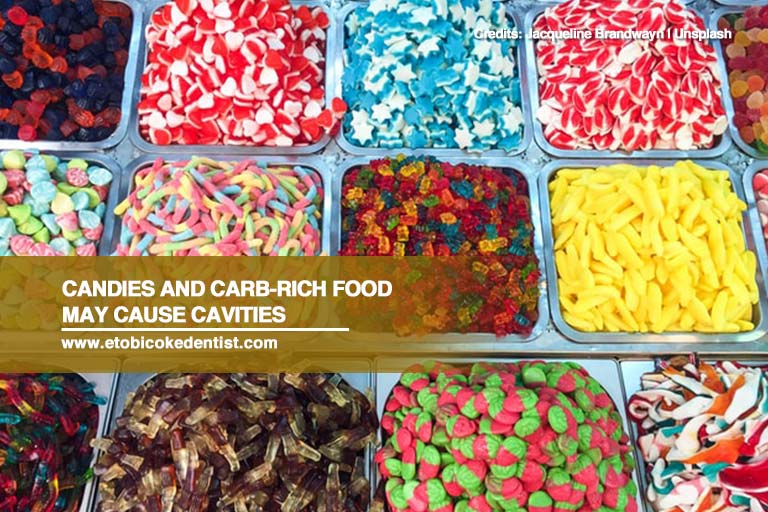
Candies are rich in sugars. And while it is true that sugars can contribute to the development of cavities, candies aren’t your only problem.
Carbohydrate-rich dishes, as they break down in your mouth while you chew, turn to complex sugar which also has the same effects as all other sugary treats. What this means is that food with high carbohydrate levels, such as bread, potatoes, pasta, and fruits, can also increase the risk of tooth decay and cavities.
- White Teeth Means Healthy Teeth
Dental health professionals don’t gauge the overall oral health via the colour of a patient’s teeth. However, teeth whitening procedures remain a popular service.
The natural colour of a person’s teeth changes from one person to the next. This can be influenced by daily habits such as diet.
Dental health professionals gauge overall oral health through fresh breath, gum health, and the absence of cavities.
- Mints can solve bad breath
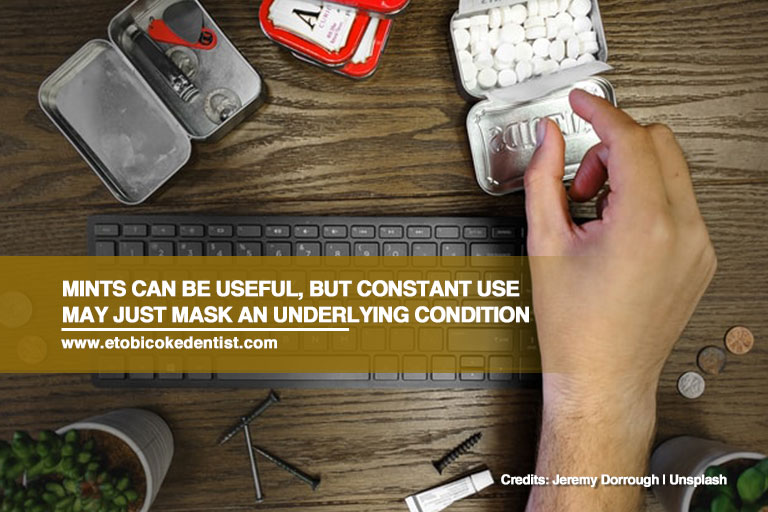
Bad breath is oftentimes masked by the use of breath mints. This may seem like the proper treatment with all the marketing hype of various mints flavoured candies.
However, bad breath, or halitosis, can be the result of more serious oral health conditions. It is important to make sure to have a medical professional check this out as most dental problems don’t occur immediately.
Halitosis can also be a sign of other health issues not directly related to oral care. Make sure you don’t ignore persistent bad breath.
- Non-persistent tooth pain is okay
If you experience tooth pain that suddenly subsides, this could be a sign of an underlying condition. Cavities form over time, and chances are by the time you start feeling the symptoms of a cavity, it would already be too late.
If a cavity has developed and the sudden onset of pain suddenly subsides, it could mean that the cavity has destroyed the nerve within the tooth.
- Oral Health is indirectly proportional to age
It is a common misconception that your dental health is expected to deteriorate as you age.
The truth is, with a proper oral hygiene routine, your teeth don’t have to fall out just because you’re reaching your golden years. It is true that as you get older, you will have to adopt a more rigorous dental care regimen. This is why you need to make sure you have regular appointments with your trusted healthcare provider.
- Gum disease is isolated in your gums
The bacteria that can cause different issues in the gums can also cause problems all over your body. Studies have shown that there is a correlation between gum disease and the deteriorating overall health of a person.
The condition of your gums can also be an indicator of different health issues as well. Diabetes, heart disease, and some types of cancers can display signs and symptoms in a person’s gums.
- Baby teeth don’t really matter
Removing a baby tooth prematurely can cause an unnecessary shift in the position of the other teeth. This is one of the most common reasons for misalignment when it comes to the positioning of teeth for toddlers.
Misalignment of teeth may make it difficult to maintain a good dental health routine and may need to be corrected using braces.
- Braces are only for children
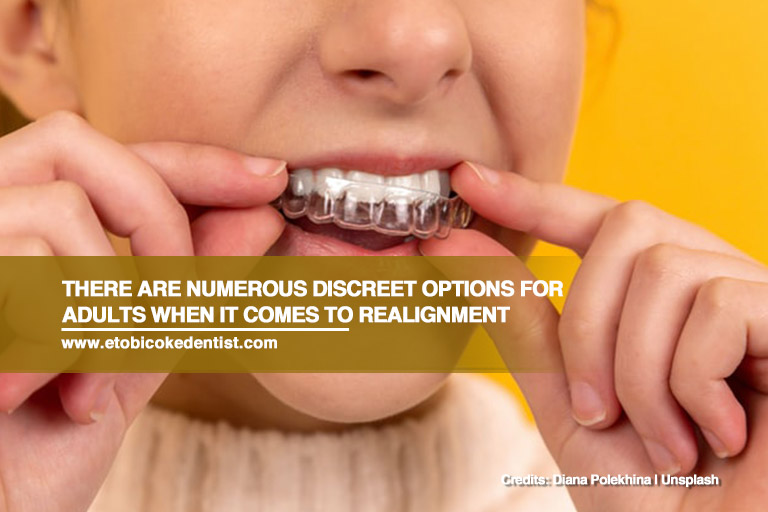
We commonly see braces in toddlers and teenagers. This is because their teeth would be much easier to adjust due to their young age. However, it is a common misconception that braces are only for children.
There are options for older adults too. Some still choose the traditional braces, while others would rather choose a more discreet variation, like clear aligners.
- If you have no oral health concerns, you do not need to see your dental care provider
An oral exam is the most effective approach to detecting problems before they occur. When issues go unnoticed or ignored for a long time, they become more difficult to address once you finally recognize them. Adults and children should have semi-annual dental exams to preserve optimal oral health. Even if you don’t see anything wrong, it’s always a good idea to schedule regular dental checks.
- Brush your teeth every after a meal
Toothbrushing is one of the best ways to remove unwanted particles that can cause dental health issues. However, brushing too much can also cause wear in the enamel of your teeth.
Dental health experts advise tooth brushing frequency to be at twice a day. Anything more and you risk doing more harm than good. After meals where you don’t have the option to brush your teeth, you can choose to drink water. The water washes down particulates in your teeth that can cause tooth decay.
Why Is It Important to Consult your Dental Care Provider?
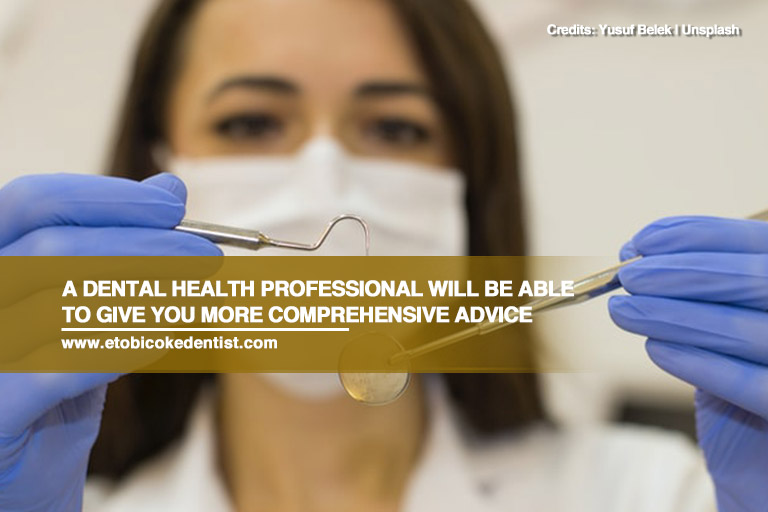
Don’t be so quick to believe all the hype about dental care. It is always best to consult with your professional dental care provider.
Dental professionals may be able to help you when you encounter issues, but they can also help in preventative care. They can offer dental cleaning and early detection of diseases. They can also give you professional advice about the different cosmetic procedures that might be available to you.
Schedule an Appointment
If you want to consult a trusted Dental Health Clinic, book an appointment with Dr. Mark Rhody Dentistry. Call us at (416) 231-4281. Dr. Rhody and his team can help advise you on the best course of action and have you keep your beautiful smile.
